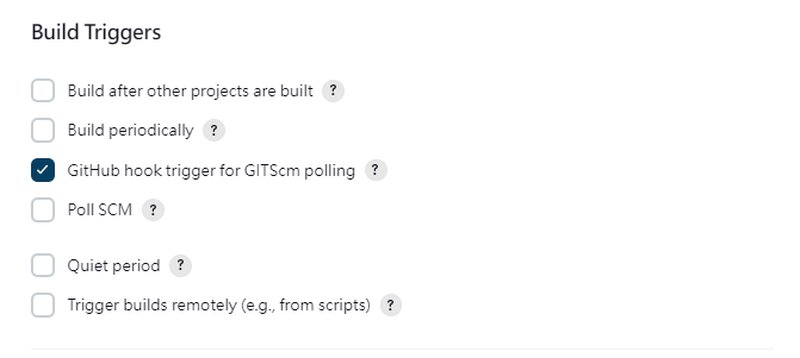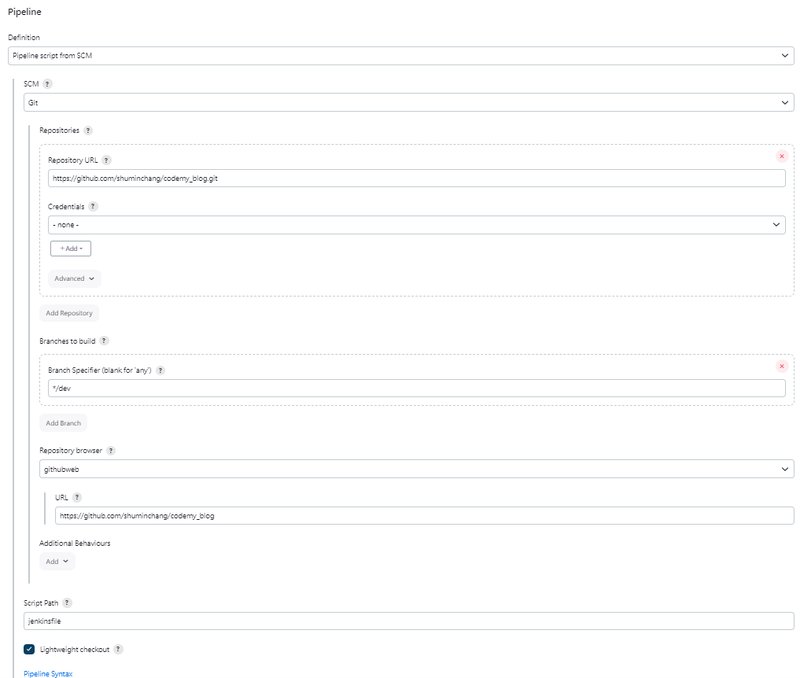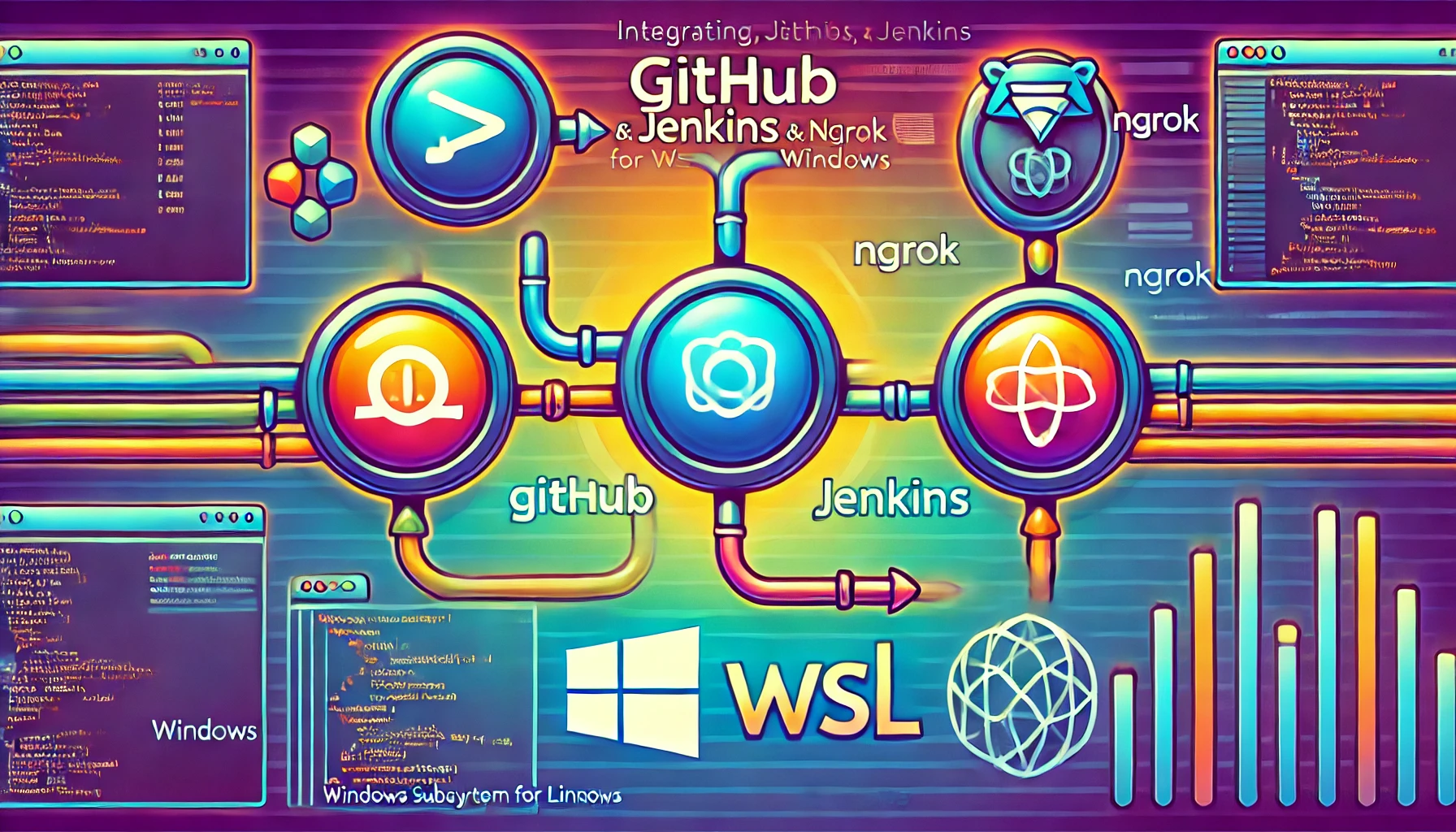Prerequisite
you already have jenkins installed and set it up in WSL.
Setting up Jenkins
start jenkins
sudo systemctl start jenkins
check status of jenkins
sudo systemctl status jenkins
check the jenkins in browsers
in url, type http://<your_wsl_ip>:8080/
browser will display jenkins login page
Login ngrok
copy authtoken
Install ngrok
https://ngrok.com/download
select Linux
install ngrok vis apt
curl -s https://ngrok-agent.s3.amazonaws.com/ngrok.asc | sudo tee /etc/apt/trusted.gpg.d/ngrok.asc >/dev/null && echo "deb https://ngrok-agent.s3.amazonaws.com buster main" | sudo tee /etc/apt/sources.list.d/ngrok.list && sudo apt update && sudo apt install ngrok
add authtoken
./ngrok authtoken <your_token>
set up your jenkins port
./ngrok http 8080
later ngrok will show your public url
https://9ee3-39-15-48-66.ngrok-free.app/
Setting Up Github Webhooks
- go to your target repository
- go to its settings
- Click Webhooks on the left panel
- click Add webhook on the top-right corner
- settings
- Payload URL
- https://9ee3-39-15-48-66.ngrok-free.app/github-webhook/
- Content type
- application/x-www-form-urlencoded
- Secret
- leave it blank
- SSL verification
- Enable SSL verification
- Events
- Just the push event
- Active
- active
- Payload URL
- after the settings are finished, Webhooks will ping you url, if the connection is success, it will show check mark, if the connection is failed, it will show red cross mark
- In Recent Deliveries you can see the push record
Setting up Jenkins
- add New Item

- Setting Up Your GitHub project

- setting up Build Triggers

- setting up pipeline

save the pipeline
- first time manually click Build Now
- after that, everytime you push a commit on github, it will automatically trigger this pipeline
- note that if you have other jenkins project link to the same repository and same branch, which also has GitHub hook trigger for gitscm polling checked, the push will trigger all of them, which will lead to port already in use error if your jenkinsfile have it.
jenkinsfile
// Defines the Jenkins pipeline
pipeline {
// the pipeline can run on any available Jenkins agent
agent any
environment {
// Define environment variables for the virtual environment directory, pip, and python executables
VENV_DIR = '/var/lib/jenkins/envs/venv' // virtual environment directory path
PIP = "${VENV_DIR}/bin/pip" // the path to the pip executable
PYTHON = "${VENV_DIR}/bin/python" // the path to the python executable
}
stages {
stage('Setup') {
// Purpose: Ensure a clean workspace to avoid issues from previous builds
steps {
script {
// Clean the workspace to ensure a fresh start
cleanWs()
}
}
}
stage('Checkout') {
// Purpose: Retrieve the latest code from the specified branch in the Git repository
steps {
// Checkout the code from your repository
git branch: 'dev', url: 'https://github.com/shuminchang/codemy_blog.git'
}
}
stage('Install Dependencies') {
// Purpose: Set up the necessary Python environment by upgrading pip and installing required dependencies
steps {
script {
// Upgrade pip and install the required dependencies from requirements.txt
sh """
${PIP} install --upgrade pip
${PIP} install -r requirements.txt
"""
}
}
}
stage('Run Server') {
// Purpose: Start the Django development server to run tests against it
steps {
script {
// Ensure the port 8002 is not already in use
sh """
if lsof -i:8002; then
echo "Port 8002 is already in use. Existing."
exit 1
fi
"""
// Start the Django development server in the background and save the process ID
sh """
${PYTHON} manage.py runserver 8002 > server_log.txt 2>&1 &
echo \$! > server_pid.txt
"""
}
}
}
stage('Run Tests') {
// Purpose: Execute the test suite to verify the integrity of the application
steps {
script {
// Give the server some time to start
sleep 10
// Check if the server started correctly using the saved process ID
def server_pid = readFile('server_pid.txt').trim()
if (sh(returnStatus: true, script: "ps -p ${server_pid}") != 0) {
echo "Django server failed to start. Check server_log.txt for details."
sh 'cat server_log.txt'
error "Django server failed to start." // mark the build as failed if the server did not start
} else {
// Run tests if the server started correctly
sh "${PYTHON} manage.py test"
}
}
}
}
stage('Cleanup') {
// Purpose: Stop the Django development server and clean up the environment
steps {
script {
// Terminate the Django development server if it is still running
def server_pid = readFile('server_pid.txt').trim()
sh """
if ps -p ${server_pid} > /dev/null; then
kill ${server_pid}
fi
"""
}
}
}
}
// Defines actions that always run after the stages
post {
always {
// Purpose: Ensure the server log is archived after the build, regradless of the result
archiveArtifacts artifacts: 'server_log.txt', allowEmptyArchive: true
}
cleanup {
// Purpose: Ensure the workspace is cleaned up after the build
cleanWs()
}
}
}



Comments...
No Comments Yet...